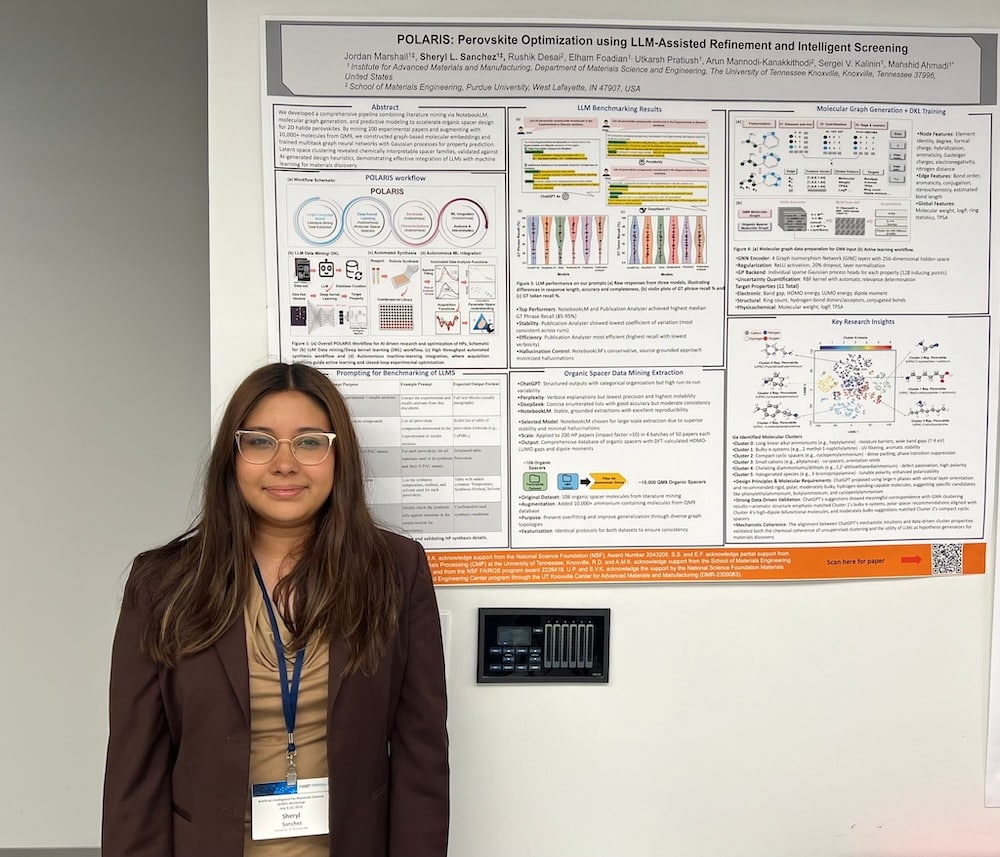
Sheryl Sanchez, a PhD candidate in the Department of Materials Science and Engineering (MSE), won the Best Poster Award at the sixth Artificial Intelligence for Materials Science (AIMS) Workshop.
The AIMS workshop, which is devoted to artificial intelligence (AI) tools that will accelerate materials discovery, is co-sponsored by the National Institute of Standards and Technology (NIST) and the Materials Genome Initiative (MGI). This year’s AIMS workshop took place in Rockville, Maryland, on July 9th and 10th.
The poster presentation session was open to all attending students, postdoctoral fellows, and early career researchers, including representatives from the Massachusetts Institute of Technology (MIT); Princeton University; Carnegie Mellon University; and Meta Platforms, Inc., the parent company of Facebook.
“Winning the Best Poster award feels incredibly validating, especially at a workshop with such distinguished participants working at the forefront of AI for materials science,” Sanchez said. “The award acknowledges not just the novelty of our approach, but also the scientific rigor with which we executed it.”
Sanchez’s poster detailed a tightly integrated informatics pipeline that she has been developing with fellow MSE PhD student Jordan Marshall to investigate the structure-property relationships of organic spacers, which is a critical area for the research of specialized crystalline materials called perovskites.
The team used a large language model (LLM) to consolidate data from 200 published experiments in perovskite design, created standardized molecular graph representations of the tested spacers, and integrated more than 10,000 related molecules from a publicly available dataset. The resulting dataset was used to train a multitask neural network (GNN) that identified several previously uninvestigated organic spacers that are promising for the creation of a particular class of perovskite, 2D halide perovskites.
“Our research addresses a fundamental challenge in the field, which is how to systematically mine and leverage the wealth of knowledge buried in scientific literature while ensuring reproducibility and accuracy,” Sanchez explained. “This award means that the community recognizes the impact our work could have on the broader materials science community by providing tools that other researchers can use to accelerate their own discovery processes.”
Contact
Izzie Gall (865-974-7203, [email protected])